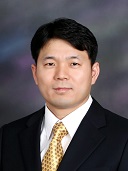A collaboration effort between Professor Hee-Sung Park from the Department of Chemistry and Professor Chan Bae Park from Ajou University produced a new technology that allows for the expansion of the genetic code of house mice (Mus musculus) through the integration of unnatural amino acids at a target protein using the regulation of acetylation. The technique will contribute to the recognition and elimination of aberrant cellular proteins that lead to severe diseases such as diabetes, dementia, and cancer.
Human cells create over 20,000 variant proteins which, shortly after formation, go under post-translational modifications — acetylation being one of such — that govern protein function. Conversely, any disturbance during modification results in anomalous proteins, a major cause of cancer cells. A previous method called amber codon suppression technique has been successfully implemented to modify various multicellular organisms; yet regulating the proteins of multiorgan organisms, especially mammals, proved to be complex and difficult to achieve.
The team’s approach resolved the problem by inserting transgenes into the mouse genome to allocate site-specific addition of unnatural amino acids (UAAs). In layman’s terms, the researchers inserted a modified version of the lysine into the house mice, which allowed for the control of the acetylation. Acetylation is a process incorporating the transfer of Nε-acetyl- lysine from one molecule to another. In the research, the scientists used recombinant green fluorescent protein from transgenic house mice as models for control of the acetylation.
They succeeded in directing acetylation during specific temporal and spatial frames in the mice. Furthermore, they restrained the abnormality in proteins to certain organs, such as livers and kidneys. The research may serve as the forefront to uncovering the causes of various diseases in mammals. More specifically, the extreme similarities between the genome of the house mice and that of humans suggest its future application in human physiology and treating diseases.
The study was published on Nature Communications on February 21.


